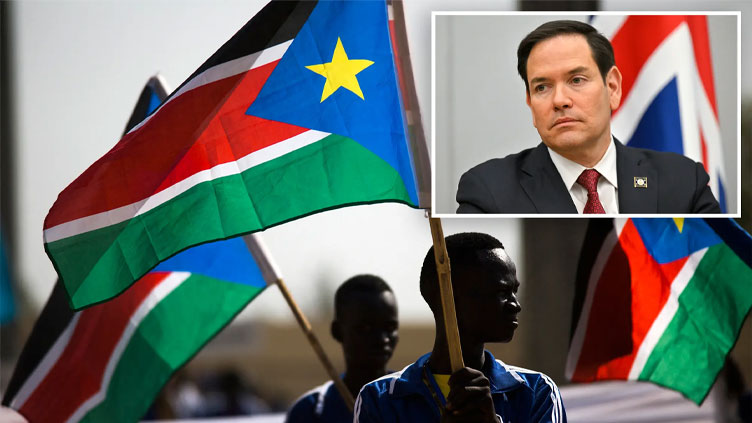
The US cancels all South Sudanese visas since the citizens have not been repatriated
Given that South Sudan has refused to accept the return of its returned nationals, the United States said on Saturday that it would cancel all visas for South Sudanese passport holders. This comes at a time when many Africans are concerned that the country may plunge back into civil war.
Repatriation of individuals who are believed to be in the United States unlawfully is one of the harsh actions taken by the administration of U.S. President Donald Trump to increase immigration enforcement.
Countries that do not immediately repatriate their citizens risk penalties, such as tariffs or visa restrictions, the government has warned.
U.S. Secretary of State Marco Rubio said in a statement that South Sudan had not adhered to the rule that states that when another nation, like the United States, tries to expel its citizens, the country must promptly welcome their return.
“Effective immediately, the United States Department of State is taking actions to revoke all visas held by South Sudanese passport holders and prevent further issuance to prevent entry into the United States by South Sudanese passport holders,” said Senator Rubio.
“We will be prepared to review these actions when South Sudan is in full cooperation,” added Senator Rubio.
According to him, the transitional administration in South Sudan needs to “stop taking advantage of the United States,” now.
When asked for comment, the South Sudanese embassy in Washington did not immediately reply.
After First Vice President Riek Machar was placed under house arrest last week, mediators from the African Union came in Juba, the capital of South Sudan, this week for negotiations aimed at preventing a new civil conflict in the nation.
The government of South Sudan has accused Machar, a longtime foe who led rebel forces during a war that killed hundreds of thousands of people in 2013–18, of attempting to incite a new insurrection.
Following weeks of combat between the military and the White Army militia in the northern state of Upper Nile, Machar was taken into custody. Though they deny any present ties, Machar’s men were allies of the White Army during the Civil War.
The conflict in 2013–18 was fought mostly along ethnic lines, with members of the largest ethnic group in the nation, the Dinka, supporting Kiir and members of the second-largest group, the Nuer, supporting Machar.
All Categories
Recent Posts
Tags
+13162306000
zoneyetu@yahoo.com



